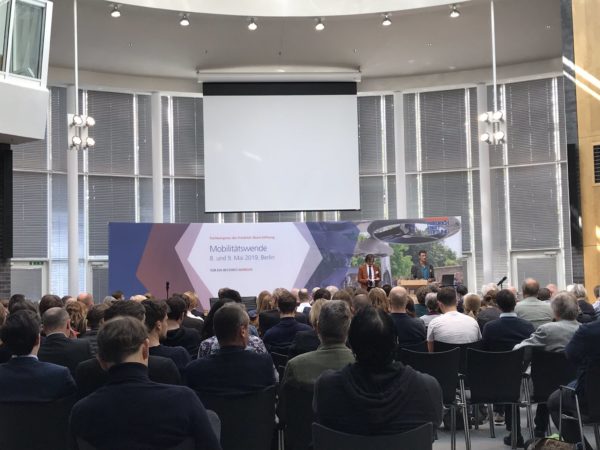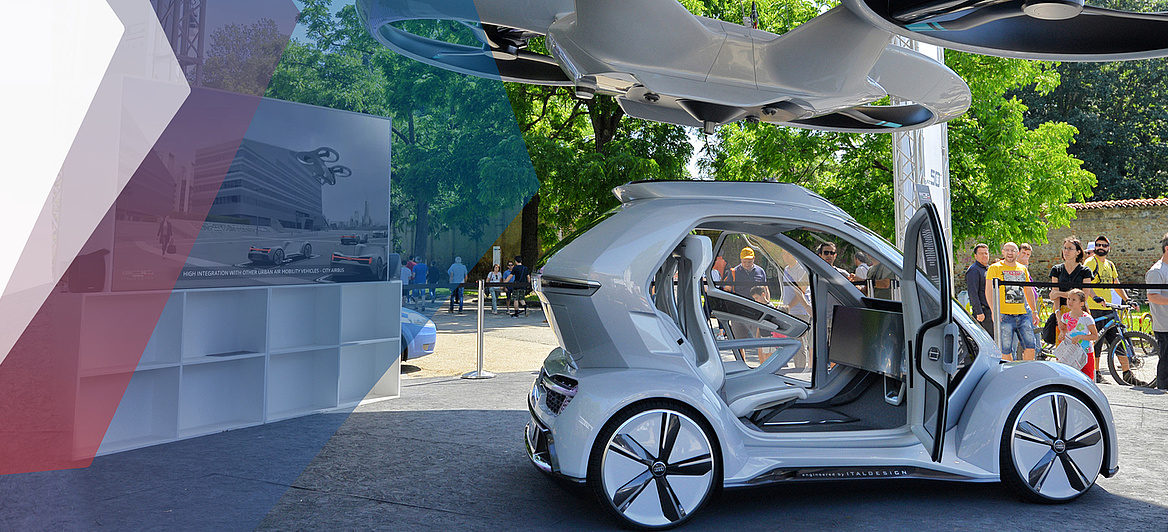So recently Susanne and I had the chance to attend the mentioned Congress at the Friedrich Ebert Foundation in Berlin. The event was split into two days with several panel discussions and other formats led by politicians and ministers from all across the globe, trade unionists, leading experts in research as well as business founders and city planners, just to name a few.
‘Designing the Change’ was the headline for the first part where urban logistics, new mobility services, changes within the mobility job market and the role of municipals especially in Germany were discussed. The general tone was quite critical about the slow process hindered by the German policies when compared to other countries in Europe. Where e.g. Hannover’s planning phase for test-running a low emission zone in a small part of the town is several years, London and other cities are establishing even more restrictive areas with ten times the size now. Therefore the demand for more freedom of action for local affairs was quite strong.
In terms of logistics, it is interesting to hear, that besides dog poo, the second most important topic that citizens consider urgent is the parcel delivery system. Several different delivery companies are operating within cities, their desire to share location data of their vehicles being small, and thus making it hard for transport authorities to evaluate and improve the situation – open data protocols, anyone? Mentioned as well was the concept of a stagecoach used in the past for delivering people and goods to their destination. Sometimes looking back can be valuable and if you adapt this idea to the rail system within or between cities we might have something worthwhile to experiment with.
Other solutions for dealing with peak car in cities were city tolls, emission- and climate taxes combined with a massive improvement of the public transport system.

The 2nd day named ‘Mobility Lab’ broadened the scope to international innovations and strategies while also discussing social justice and gender equality complemented by the discussion about ownership of public space and the role of public transport as a savior for the sustainable future. It was apparent and stated by several panelists that the problem of implementing new solutions is not an insight problem it is one of political interests and lobbying. Because a valuable change benefiting the quality of a city might not get you re-elected.
As learned from examples like Bogota prioritizing walking and cycling as basic modes of transport can help cities quickly to gain more quality, reduce noise and of course CO2 emissions. Western countries struggle with a future-orientated allocation of money and similarly does the global south. Identified as a major issue the cutting of public funds to support the development of transport, schools among other topics blocks initiatives to implement change strategies. The call for scalable solutions seems outdated as well. There are no copy-paste solutions that can be applied from the Global North to the Global South. The focus should be on building networks in the Global South so that regions with similar conditions can learn from each other instead of relying on western countries to offer solutions – speeding up the bottom-up processes with financial support can be a significant driver in that.
Concluding the Congress by saying that economic prosperity and ecological sustainability are no opposites would be reasonable giving the talks and discussions we heard. Although I would slightly alter that phrase. Liking it or not but by rating both aspects equal in value we will not implement sustainable options in time. Eleven years is the proposed timeframe before irreversible ecological disaster might add plenty more pressing issues to the existing ones. So I say it is time to realize that ecology is more important than business prosperity. Every business decision needs to abide by ecological sustainability parameters. How else are we gonna keep the miraculous beauty of our planet?
